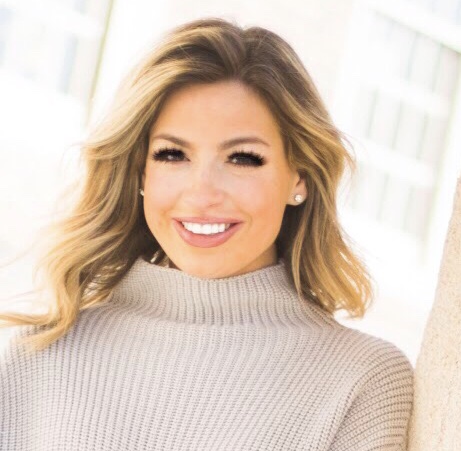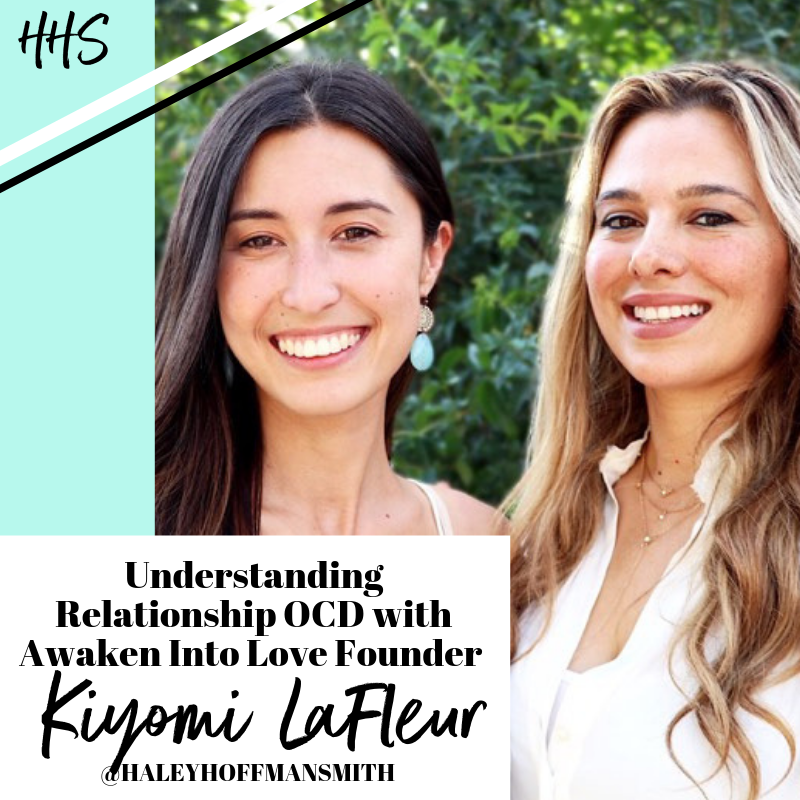When you think of OCD (Obsessive Compulsive Disorder), you may visualize someone deliberately walking to avoid cracks in the sidewalk or washing their hands every five minutes. To be honest, I did. But, there are many different types of OCD that often aren’t discussed — which means you may struggle with one type and not even know it.
It’s in part due to the stigma. OCD has taken on such a negative connotation due to how it’s portrayed in the media: the obsessive character in that TV show or movie who can’t stop doing something, for fear of something else happening. It’s a “if not this, then,” scenario.
In a conversation with Kiyomi LaFleur, I learned about Relationship OCD for the first time. Kiyomi is the founder of Awaken Into Love, an online community that supports those who struggle with relationship OCD. Kiyomi herself has struggled with rOCD, in addition to general anxiety disorder and panic disorder, and believes she can bring a lot to her work because of her personal experiences. She also has a background in social work, psychology and yoga therapy, and has worked in the mental health field for over seven years.
Over a cup of coffee in the local Denver WeWork with her adorable dog listening beneath the table, we got real about the sneakiest types of mental illnesses – those that go undiagnosed and mistreated, because they don’t show up in the same way the standard definitions posit – and why her work is so important to her.
What is Relationship OCD?
In Kiyomi’s words, Relationship OCD (rOCD) is when one suffers from a traumatic experience in their lives that caused a great degree of uncertainty, and in turn, it impacted their relationship. This trauma combined with false beliefs on love and relationships cause Relationship OCD. “Even if the partner has given them no reason not to trust them, they’ll still obsessively look for fears that their partner is wrong for them, plagued with obsessive doubts and anxiety that the sufferer doesn’t love their partner, even if the relationship is healthy, secure and close to perfect,” Kiyomi explained.
I was surprised when I heard this definition, because I, like some of you (I imagine), have witnessed these behaviors in friends of mine, or even experienced it myself at certain points. And from a logical, non-psychological standpoint, it makes a lot of sense to me. When one portion of your life has been affected by uncertainty in a debilitating way, it can be hard to rely on other sources of certainty. After all, trauma is most traumatic when something you expected to be certain became uncertain. It seems to be a subconscious way of protecting the self from more hurt and trauma.
How do you know if you have it?
Chances are that if you identified with the description of rOCD, you may be struggling with it. But to clear out any gray areas, Kiyomi also offers a free checklist on her website. Here are some common symptoms with Relationship OCD– People are played with anxiety with thoughts such as:
- “What if I don’t love my partner?”
- “What if I don’t love my partner enough?”
- “What if I’m not really in love with my partner?”
- “What if my partner is not ‘The One’?”
- “What if I don’t miss my partner enough? Or miss them at all when they’re not around?”
- “What if I’m not really attracted to my partner?”
- “What if I can’t stop thinking about my partner’s lack of attractiveness and their flaws?”
And more…
Combined with compulsions to relieve the obsessions:
- Checking to see if you have feelings for your partner.
- Checking to see if your feelings for your partner are enough.
- Comparing your partner’s attractiveness to others.
- Checking your feelings toward others and seeing if you find them attractive or not.
- Checking if you find your partner attractive and then getting instant satisfaction if you find them attractive.
- Checking feelings during sex to see if you’re turned on or turned on enough.
- Checking feelings during sex if you’re emotionally feeling connected to your partner.
- Finding reassurance through Googling for answers on relationships
Next Steps
Fortunately, Awaken Into Love offers a number of resources, including an online community with others who struggle, an e-book, and a course. Kiyomi and her fellow therapist / rOCD specialist Alexis de los Santos also offer coaching and therapy. Both are intended to validate the experiences and concerns of everyone who comes across their resources because many who struggle with rOCD will report having invalidating experiences… if they even knew it was real in the first place.


